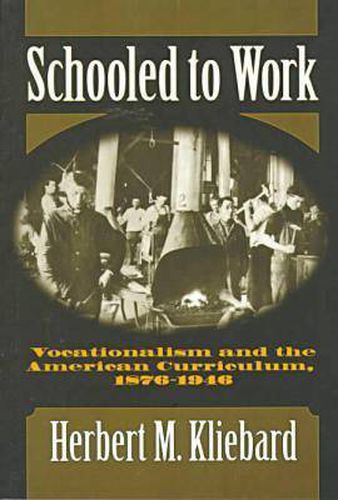Readings Newsletter
Become a Readings Member to make your shopping experience even easier.
Sign in or sign up for free!
You’re not far away from qualifying for FREE standard shipping within Australia
You’ve qualified for FREE standard shipping within Australia
The cart is loading…






In this trenchant interpretation of the rise of vocational education, Herbert M. Kliebard explains how Americans turned to public schools for answers to the problems of an increasingly urban, industrial society. Tracing the evolution of job training as an educational ideal, Kliebard analyzes the construction of vocationalism through three overlapping but distinctive stages. In the first stage, manual training is promoted as a pedagogical reform and moral corrective. In the second stage, vocational training for the new industrial workplace emerges as a major component of the American curriculum and contributes to its bifurcation. In the final stage, preparation to enter the workforce begins to eclipse other educational purposes. Concluding with a Deweyan critique of vocationalism, this book offers a much-needed perspective with which to view current debates about the meaning of public education and the transition from school to work.
$9.00 standard shipping within Australia
FREE standard shipping within Australia for orders over $100.00
Express & International shipping calculated at checkout
In this trenchant interpretation of the rise of vocational education, Herbert M. Kliebard explains how Americans turned to public schools for answers to the problems of an increasingly urban, industrial society. Tracing the evolution of job training as an educational ideal, Kliebard analyzes the construction of vocationalism through three overlapping but distinctive stages. In the first stage, manual training is promoted as a pedagogical reform and moral corrective. In the second stage, vocational training for the new industrial workplace emerges as a major component of the American curriculum and contributes to its bifurcation. In the final stage, preparation to enter the workforce begins to eclipse other educational purposes. Concluding with a Deweyan critique of vocationalism, this book offers a much-needed perspective with which to view current debates about the meaning of public education and the transition from school to work.